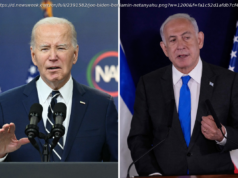Its longtime enemy now a fact of life, Washington must choose when to shun or tolerate the group, with all the wrenching trade-offs each policy choice brings.
Even as the United States finalizes its departure from Afghanistan, it faces a dilemma there as wrenching as any during the 20-year war: how to deal with the new Taliban government. The question is already manifest in the debate over how deeply to cooperate against a mutual enemy, the Islamic State branch in the region, known as ISIS-K. Another: Whether to release $9.4 billion in Afghan government currency reserves that are frozen in the United States. Handing the Taliban billions would mean funding the machinery of its ultraconservative rule. But withholding the money would all but ensure a sudden currency crisis and halt on imports, including food and fuel, starving Afghan civilians whom the United States had promised to protect. These are only the beginning. Washington and the Taliban may spend years, even decades, pulled between cooperation and conflict, compromise and competition, as they manage a relationship in which neither can fully tolerate nor live without the other. However fierce in battle, the Taliban seem to understand that governing an impoverished, war-ravaged nation is a very different challenge for which it needs economic and diplomatic support, both of which it is already seeking from the United States. Washington, for its part, sees Afghanistan as a potential haven for international terrorists, a center of geopolitical competition against its greatest adversaries and the site of two looming catastrophes — Taliban rule and economic collapse — that could each ripple far beyond the country’s borders. At home, President Biden already faces a backlash over Afghanistan that would be likely to intensify if he were seen as enabling Taliban rule. But he may find that securing even the most modest American aims in the country requires tolerating the group that now controls it. His administration got a taste of this new reality last week, when American forces evacuating Kabul relied on Taliban fighters to help secure the city’s airport. “It’s in their interest that we are able to leave on time,” President Biden said when asked about the risks, and perhaps indignities, of welcoming partial Taliban control over access to the evacuation. He added, in a line that may come to define the relationship, “It’s not a matter of trust, it’s a matter of mutual self-interest.” If the United States, now without troops or allies in Afghanistan, wishes to contain ISIS-K, it will need on-the-ground intelligence and friendly forces. And the Taliban, still straining to consolidate control over the country’s many remote corners, may need American air power to help defeat the group. That combination was essential to beating the Islamic State in Iraq, officials who worked on the campaign have said. Washington and the Taliban are already testing quiet, mostly tacit coordination. The United States has a long history of working with unsavory governments against terrorist groups. But such governments have routinely exploited this to win American acquiescence, and even assistance, in suppressing domestic opponents they have labeled extremists.






